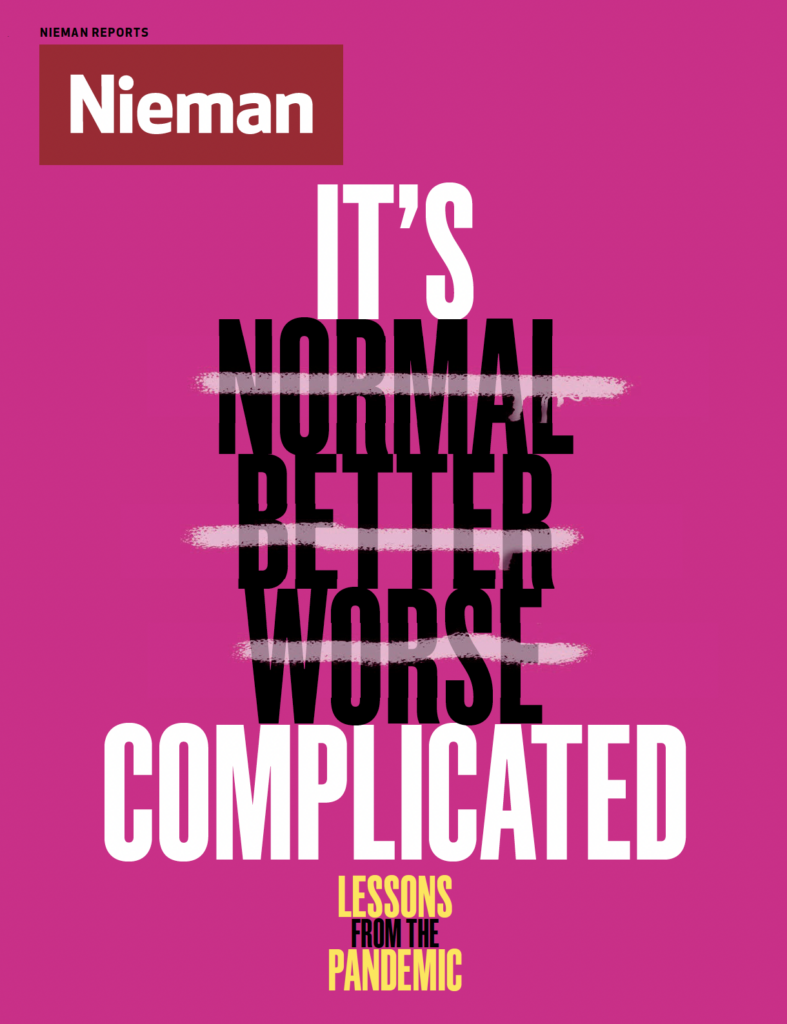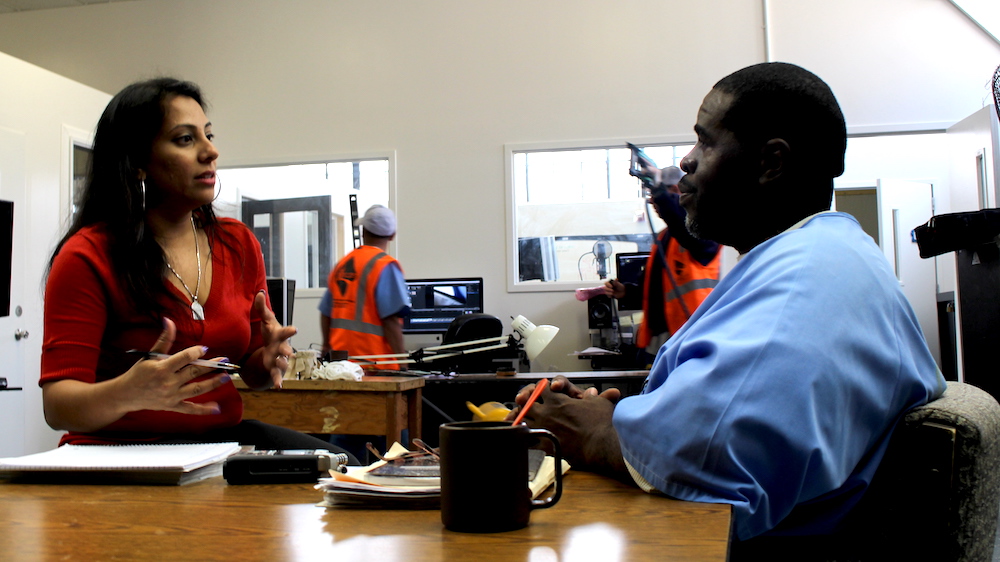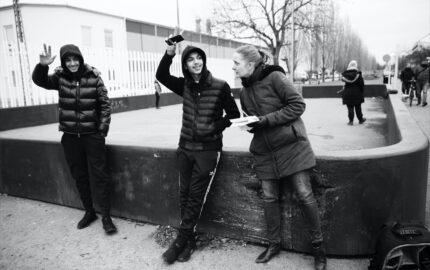
Hope that the coronavirus is finally being brought under control has prompted plans for a return to “normal.” But can, or should, journalism return to a pre-pandemic “normal?” Across newsrooms, the way we once covered education, sports, food, politics — any beat — is unlikely to be sufficient for the new moment we are entering.
What are the lasting lessons of this time? And how should we do journalism differently moving forward? These are the questions Nieman Reports explores in our essay series, Lessons from the Pandemic.
The first thing I noticed was the dirty plexiglass as I entered the visiting room of the New Jersey State Prison in 2005. My best friend had just been sentenced to 150 years behind bars and I was still in a state of shock and grief at the verdict. As I waited nervously for him to arrive, I realized that the glass wouldn’t be the only thing separating us.
He was now one of millions of people incarcerated in the United States and, for the first time in our friendship, I knew nothing about what life was like for him. As a young reporter back then, I covered court cases regularly. But I never gave much thought to what happened once the people in my stories left the courthouse and entered the prison system. I never thought about the fact that life went on behind prison walls, that there was a whole community filled with stories that were untapped and hidden.
“Everyone in here has a story to tell,” he told me during that visit.
Over the next decade, I realized that those stories would continue to go untold if journalism didn’t find a way to amplify them.
In 2019, my partner, Yukari Iwatani Kane – an adviser for the award-winning San Quentin News – and I launched the Prison Journalism Project, which we initially envisioned as an educational initiative to teach incarcerated men and women the tools of journalism so they would be able to tell their own stories with nuance. It was the vision I had as a 2018 Knight Visiting Nieman Fellow as I spent long hours in Lippmann House researching the staggering statistics behind mass incarceration in the country and figuring out how journalism could make a difference.
The U.S. currently has about 5% of the world’s population but, with 2.3 million people behind bars, it has 25% of the global prison population. That’s the population of a small country, yet there is virtually no reporting from within. Almost every story that is written about mass incarceration comes from outside writers, people with limited access to the daily happenings of prison life. They are, essentially, foreign correspondents reporting on a population without any local journalists to help guide them through the terrain.
The Prison Journalism Project aims to change that. Our goal is to create the first national network of prison journalists who can work with mainstream media to report on life behind bars.
To do that, education and publishing must go hand in hand. We are creating a correspondence-based journalism curriculum, called PJP J-School, and the first of its kind journalism textbook specifically for prison reporters to give them initial training in journalism practices. The Prison Journalism Project also launched an online newsroom and became a member of the Institute for Nonprofit News to give our writers a launching pad to get their stories noticed. We believe that combining education with a publishing platform is an important way to foster more equity in the journalism industry, by providing the means for this marginalized community to take back their narrative.
Since its launch in April 2020, the PJP has published more than 600 stories by over 250 writers across 28 states and Canada. Our writers have been published in prominent publications such as The Washington Post and The Marshall Project. And we partnered with the Society of Professional Journalists in April to launch the first national, virtual SPJ chapter for incarcerated journalists.
It’s a solid beginning and one that I couldn’t have imagined in the early days of my Knight Nieman Fellowship as I built the foundation for the Prison Journalism Project. There is still a great deal of work to be done but our writers, including my best friend, tell us that the ability to report their experiences from prison has already broken down some of the walls that were built around them. And the realization that they are a part of a budding community of prison journalists has given them an identity that extends far beyond the crimes that have come to define them.



